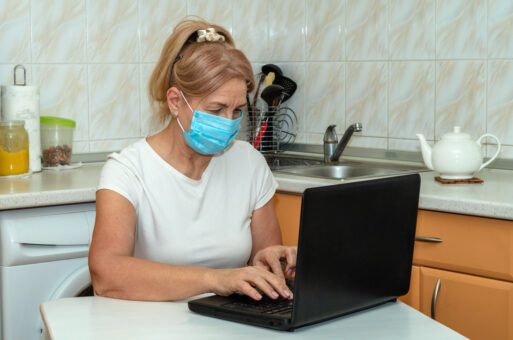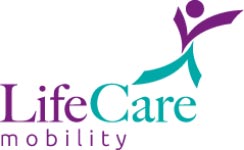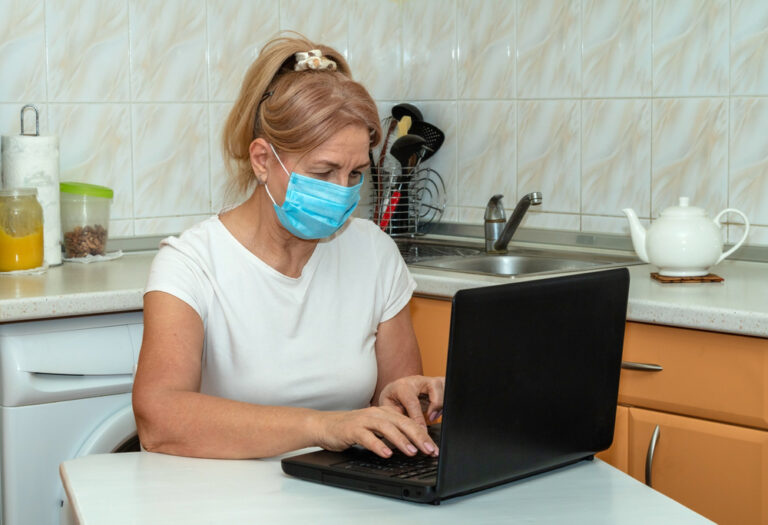
The calendar may have changed but sadly, the pandemic rages on, continuing to put Canadians at risk. As we’ve noted for many months, senior citizens are naturally the most susceptible to succumbing to the ill effects of the coronavirus. So, it goes without saying that, as we venture into this new year, we maintain our commitments to the health and safety of the seniors in our lives.
What steps should be taken to care for your elderly loved ones during COVID-19? Here are three important ones:
1. Be well prepared when going out in public.
Here in Ontario, a lockdown is currently being imposed. As a result, you’re not likely to do much venturing outdoors. There are, of course, some outdoor trips that are mandatory. Going to the grocery store is an obvious one. If going with your elderly loved one, make sure that he/she is prepared for the occasion. This means wearing a mask that covers his/her mouth and nose. It also entails bringing hand sanitizer along with you.
As well, it’s important that, before the trip, you have a conversation. A clear explanation of where you’re going, why you’re going and how long you’ll be there will be helpful to the senior in your life. Do all you can to be informative without creating any major cause for concern. The pandemic can be scary. Part of your job as a caregiver is to offer your care recipient some peace of mind.
2. Sanitize the home.
Being extra vigilant about your cleaning routines is a practice you’ll have to maintain in 2021. In 2020, the use of sanitizing wipes became exceedingly popular. This practice hasn’t lost any steam. Use these wipes to clean the most commonly-touched surfaces in the home. You should pay particular attention to the kitchen and bathroom. Sanitizing the home is especially important if you have a caregiver who visits to assist with your elderly loved one.
“If your older loved one receives personal care services from an in-home caregiver, consider asking his or her caregiver to take extra precautions such as more frequent cleaning, limiting errands, and increased hand hygiene,” advises VisitingAngels.com, “Your loved one’s caregiver also should be self-monitoring for signs of COVID-19 and should seek medical care if he or she notices any concerning symptoms.”
3. Have conversations about the “new normal”.
It’s vital to remember that a senior’s mental health is equally important to his/her physical well-being. This is especially true for older adults who live with dementia or Alzheimer’s disease. Why do I have to wear a mask? How come I can’t I see my grandkids? Why won’t anyone visit me? These and many other questions like them are likely being asked by seniors all over Canada. Your approach to the answers must be compassionate and clear.
Be sure to calmly explain the reasons for the safety precautions being taken. Give regular reminders about how much you care for your elderly loved one to ensure he/she knows the measures you are taking are not punishments. Set up as many virtual meetings as possible with family members and friends to keep the senior in your life connected with loved ones. Keeping isolation and loneliness at bay is a hugely important caregiver task.
The LifeCare Mobility Solutions team is committed to assisting families with elder care during the pandemic. If you have any questions about our mobility solutions, please don’t hesitate to call us at 416-267-9800 or email us at info@lifecaremobility.ca. You may also contact us by filling out the form on our Contact page!










